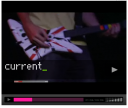UPDATE: 15 MAY 07: Fred Child has been on location from the Virginia Arts Festival, broadcasting Performance Today from WHRO in Norfolk, along with some select excerpts from the Festival.
 The Queen may have gone home, but this is actually the big “America 400th” weekend in Virginia. The actual anniversary date of the Jamestown landing is Monday, May 14th. On-point editorial (“From Jamestown’s Swamp“) in today’s WaPo:
The Queen may have gone home, but this is actually the big “America 400th” weekend in Virginia. The actual anniversary date of the Jamestown landing is Monday, May 14th. On-point editorial (“From Jamestown’s Swamp“) in today’s WaPo:
Americans love tidy success stories. Jamestown — Pocahontas notwithstanding — was anything but. Many of the original settlers were well-born men of leisure who supposed they would lead a life of ease in Virginia, provisioned by London, fed by docile natives and enriched by vast stores of easily accessed gold. They were misled…
The RoeDeo has been following the Jamestown saga for some time now, both for its historical thread and modern-day musical expressions. The “disovery of America” theme permeates the programming of this year’s running of the excellent Virginia Arts Festival, (a/k/a the “Tidewater Tanglewood.” Check out what’s happening this weekend:
Sure, it’s all a little gimmicky — Sunday, a 400-piece orchestra and a 1607-voices choir will perfom the Grand Finale program that may or may not be televised. But what an impressive line-up of first-rate American composers! (The Arts Festival also runs a John Duffy Composers Institute – this year’s faculty also includes Anthony Davis and Lee Hoiby.) In between, check out this lineup for “400 minutes of Music” Local hero Bruce Hornsby, Ricky Skaggs, and Chaka Khan, headline “an afternoon-long program featuring contemporary rock infused with native American musical traditions from Brule, a mix of folk, world, blues and soul music from South African artist Vusi Mahlasela, folk roots music from Michael Seeger, poetic urban folk from Jen Chapin, and alternative country from Scott Miller & The Commonwealth.”
Wow – that’s a helluva music mix. Mahlasela (former member of the African National Congress!) was just interviewed on Morning Edition, Mike Seeger (Pete’s brother) is an authentic roots-music hero – I can’t believe I first saw him perform – gulp – 40 years ago, with the New Lost City Ramblers. Jen Chapin (daughter of the late Harry) is a promising singer-songwriter whose debut CD Linger I thought was quite good if a tad overproduced. And Scott Miller? He’s been tagged “The Virginia version of John Mellencamp,” which I suppose is as good a description as any.
So, Unusual for most pop musicians, but utterly Hornsby, who’s one of the most interesting musicians around. (Yes, I’m in the tank for the other Bruuuuuce. I had a hand in bringing him to NPR last year. Check out his performance on Talk of The Nation, and/or his solo show at the Gilmore Festival.

You’re liable to hear Bach, Bebop, or bluegrass in the midst of his solo-piano shows, and over the years his collaborators have included (according to Bruce’s website – I can’t keep track of them all: The Grateful Dead, Shawn Colvin, members of the NY Philharmonic Orchestra, Ricky Skaggs, Ornette Coleman, Bill Evans, Robbie Robertson, Branford Marsalis, the aforementioned Chaka Khan, Roger Waters, Bonnie Raitt, Pat Metheny, Gregory Hines, and the Nitty Gritty Dirt Band.) Oh, and forward-thinking enough that you can download some of his live shows. For a price, to be sure, but they’ll even make CD copies for you.
On the subject of concert audio, and getting back to where we started, you’ll be able to hear some select Virginia Arts Festival concerts on Performance Today, including the appearance in Portsmouth, VA. by the Academy of Ancient Music. No word yet on if/when the May. 11 concert featuring Duffy, Hailstork, Higdon et al will appear…
Sheesh. Meant this to be short now turned into another novelette of a post…










You must be logged in to post a comment.